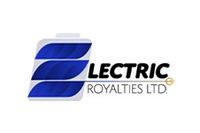Big Tech Firms Playing Defense After Amnesty International Report
MintPress News released an overview of Amnesty International’s recent report on the cobalt supply chain. The report’s conclusion is that major tech companies are not ensuring that their products do not contain cobalt mined by child laborers.
MintPress News released an overview of Amnesty International’s recent report on the cobalt supply chain. The report’s conclusion is that major tech companies are not ensuring that their products do not contain cobalt mined by child laborers.
Commenting on the report, MintPress news states:
Amnesty’s report has many firms on the defensive. “So far, many of the big tech companies have denied sourcing cobalt from the DRC – or have explained that every effort is made to ensure that their raw materials are ethically sourced,” noted Sarah K. Rathke, a trial lawyer specializing in supply chain issues, in a Monday analysis for National Law Review. She believes tech companies can expect to face increased activism over conflict minerals this year.
Dynda A. Thomas, a lawyer specializing in conflict minerals, noted in another analysis published Monday by National Law Review, that existing laws covering conflict minerals are unlikely to apply to cobalt, and efforts to change these regulations are likely to face steep resistance. She used Intel’s move toward “conflict-free” microprocessors as an example:
“[E]arlier this month, Intel announced that it is now manufacturing ‘conflict-free’ microprocessors. And, the company went on to commit that its broader product base would also be ‘conflict-free.’ But, adding cobalt to the SEC’s definition of conflict minerals would mean starting over, at least with respect to cobalt in Intel’s supply chain.”
She urged corporations to do more than the law requires, or face the wrath of human rights groups and the possible lost profits caused by the boycotts and activism they inspire.

